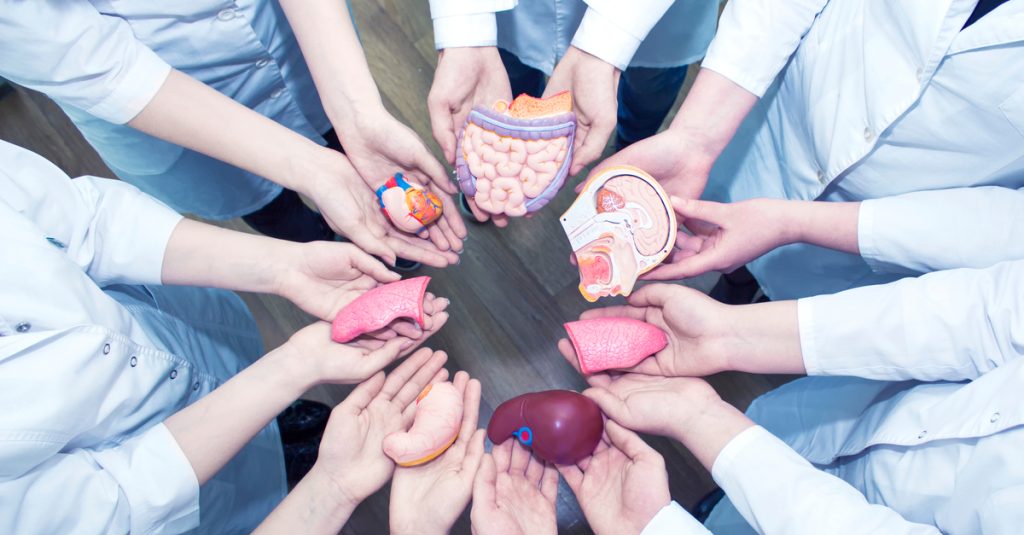
MONTREAL, Feb. 8, 2023 – Transplant Québec’s annual statistical review has revealed a threefold increase in the number of organ donors over the past five years. The organization received a record number of organ donation referrals in 2022, including a steep rise of more than 130% in organ donations through medical aid in dying (MAID). In the past year alone, close to 15% of organ donors had prior recourse to MAID. The vast majority (close to 85%) had received a primary diagnosis of neurodegenerative or neurological disease. “In certain medical conditions, organ donation can be performed with considerations similar to those applicable to donation following cardiocirculatory determination of death (CDD),” explained Sylvain Lavigne, Director of Nursing and External Partnerships at Transplant Québec.
“The practice of organ donation in a MAID context is recent. It requires that significant adaptations be made to standard practices used by Transplant Québec and health establishments, notably by virtue of the fact that the donor is conscious and apt to give their consent,” said Mr. Lavigne in summarizing the past five years. It was only in December 2015 that the Act respecting end-of-life care first gave Quebecers recourse to MAID, based on their health condition. The first two cases of organ donation in this context were practiced in 2017 at the initiative of people who had reached the end of life. Respect for their sole individual wishes serves to guide Transplant Québec’s approach.
These new statistics point to an underlying trend whereby Quebec will stand out on the international level, together with Belgium, the Netherlands, Canada, and more recently, Spain, as the only countries that practice organ donation in a MAID context. According to the annual report published by the Commission sur les soins de fin de vie, the number of MAID procedures continues to increase in Quebec. Considering only the primary diagnostics compatible with organ donation, it is reasonable to estimate that the potential number of donors stemming from MAID practiced in Quebec will reach 10%, which could represent an increase of 366 donors based on figures from last year. “Not only is this an opportunity to increase the number of organ donors in Quebec, but it’s also an incredible opportunity to allow more people to benefit from a transplant,” said Martine Bouchard, the newly appointed Executive Director of Transplant Québec. “In addition to increasing the number of transplant recipients through their generous gesture, these people also lend meaning to their condition by saving other people’s lives.”
Top-3 performance in Quebec
Regarding organ donation referrals, the metropolitan region ranks first, per capita, among the best-performing regions in Quebec, with a rate of 20.3 potential donors per 100,000 inhabitants, followed by the Saguenay-Lac-Saint-Jean (13.1) and the Estrie region (12.2). It bears recalling that referrals are made to Transplant Québec by a health professional who identifies a potential donor based on standard procedures applied in organ donation or organ donation in a medical aid in dying context (MAID).
2022 at a glance:
- 854 organ donation referrals made to Transplant Québec.
- 913 people registered on the single waiting list managed by Transplant Québec (as of December 31).
- Some 483 people received a transplant in Quebec thanks to the generosity of deceased donors and their families.
- For the second consecutive year, Quebec recorded an unprecedented number of lung transplantations (78), thereby reducing the number of people waiting for a transplant to its lowest level ever.
- In the past 10 years, waiting times for people in need of a lung or kidney transplant decreased significantly, by 87% and 60% respectively.
- Some 171 deceased donors in Quebec made it possible to transplant 584 organs.
- Close to 15% of organ donors had recourse to medical aid in dying (MAID).
The 2022 Organ Donation Report is available here.
Complementary fact sheets can also be viewed here.
About Transplant Québec
Transplant Québec has a mandate from the Minister of Health and Social Services to save lives and improve the health of persons in need of a transplant by coordinating the organ donation process, ensuring the equitable allocation of organs, supporting best clinical practices through consensus-building and the mobilization of its partners, and promoting organ donation in the society at large. Transplant Québec therefore works to ensure that the greatest possible number of Quebecers waiting for an organ can benefit from a transplant in as timely a fashion as practicable.
SOURCE Transplant Québec
